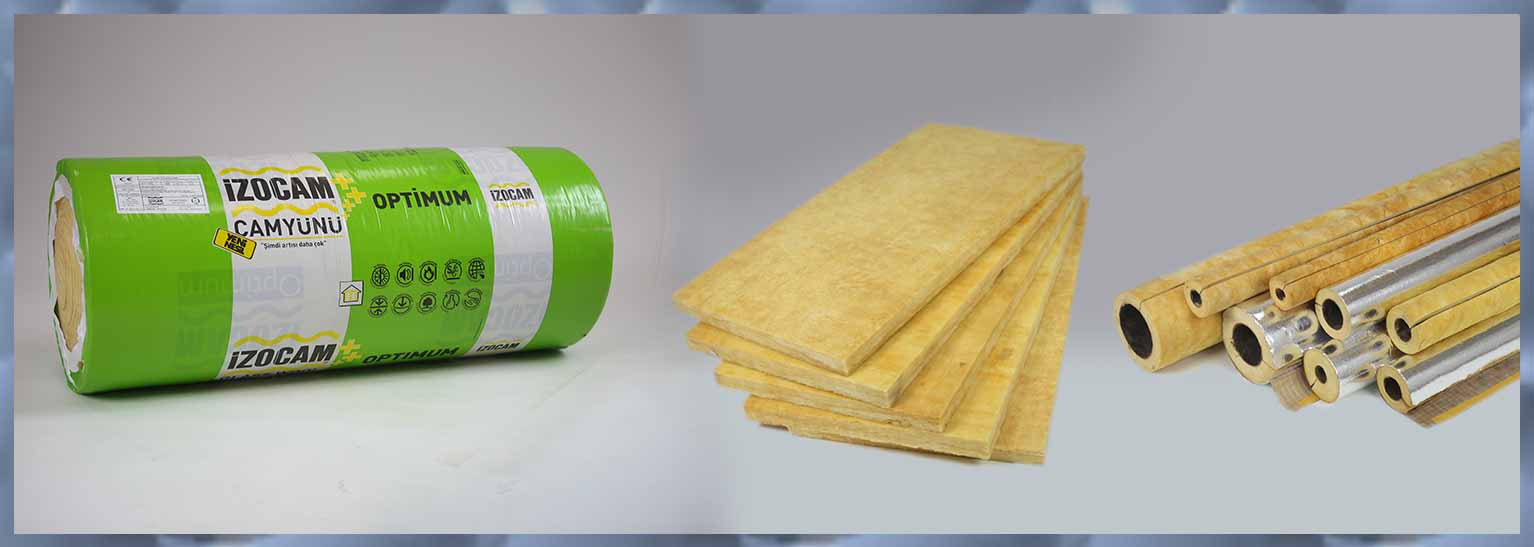
Glass Wool
Glass Wool
Glass wool is made from silica sand, an inorganic raw material, which is obtained domestically. It is produced through heating silica sand at 1200˚C – 1250˚C and transforming it into fibres. It can be manufactured in the forms of blanket, board, pipe or loose in different size and with different technical properties, with different facing materials according to the intented use and the place of use. It is used for thermal insulation, sound insulation, acoustic comfort as well as fire safety.
Glass Wool
- Glass wool is made from silica sand, an inorganic raw material, which is obtained domestically. It is produced through heating silica sand at 1200˚C – 1250˚C and transforming it into fibres.
- It can be manufactured in the forms of blanket, board, pipe or loose in different size and with different technical properties, with different facing materials according to the intented use and the place of use.
- It is used for thermal insulation, sound insulation, acoustic comfort as well as fire safety.
- It is manufactured with the licence of Saint Gobain Isover, France.
- It is produced in the plants that hold the ISO 9001 Quality Management System, ISO 14001 Environmental Management System, OHSAS 18001 Occupational Health & Safety Management System and ISO 50001 Energy Management System certificates provided by Bureau Veritas.
- Izocam Glass Wool products that are subject to TS EN 13162 hold the CE mark according to the Construction Products Directive (305/2011/AB).
- Izocam Glass Wool Products certified by EUCEB according to conformity of mineral wool fibres with note Q of regulation (EC) no 1272/2008.
- Its declared thermal conductivity is 0,031 ≤ λ ≤ 0,043 W/mK. (at 10˚C)
- Depending on the declared thermal conductivity values, Izocam Glass Wool products are in the thermal conductivity groups of 035, 040 and 045.
- Water vapour diffusion resistance factor μ = 1.
- Depending on the product type, the temperature of use is between -50/+250˚C. This temperature reach 500˚C for loose glass wool products. In addition to that, special glass wool products that can be used between -200/+450˚C are produced. Melting temperature >800˚C.
- Even if it is subjected to heat and humidity it stays dimensionally stable.
- It is rot proof and resistant to aging. It does not corrode, decompose or allow mold formation. They are resistant against insects and microorganisms.
- It is not hygroscopic and capillary.
- Unfaced glass wool products are classfied as “A1” group noncombustible materials with respect to TS EN 13501-1.

